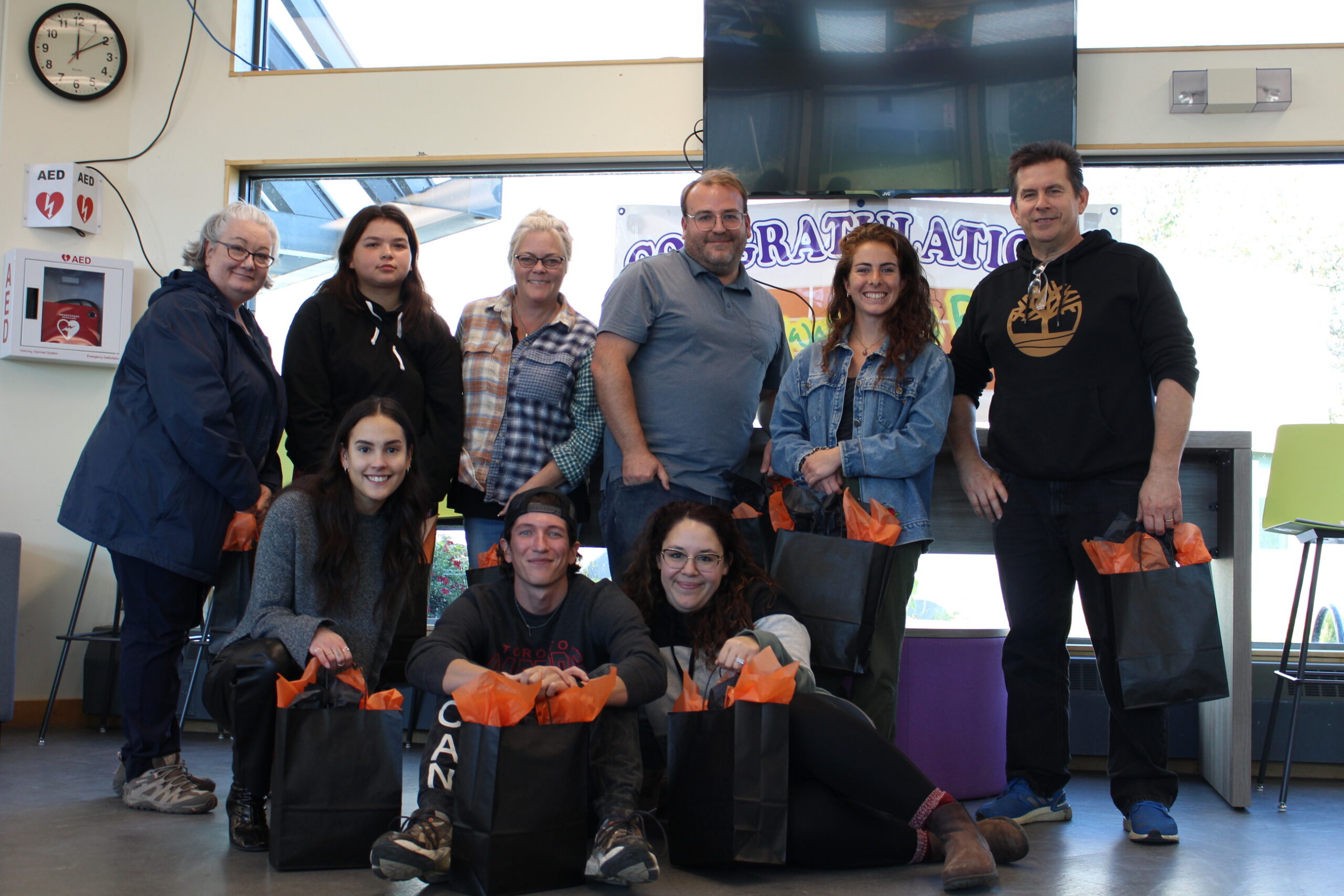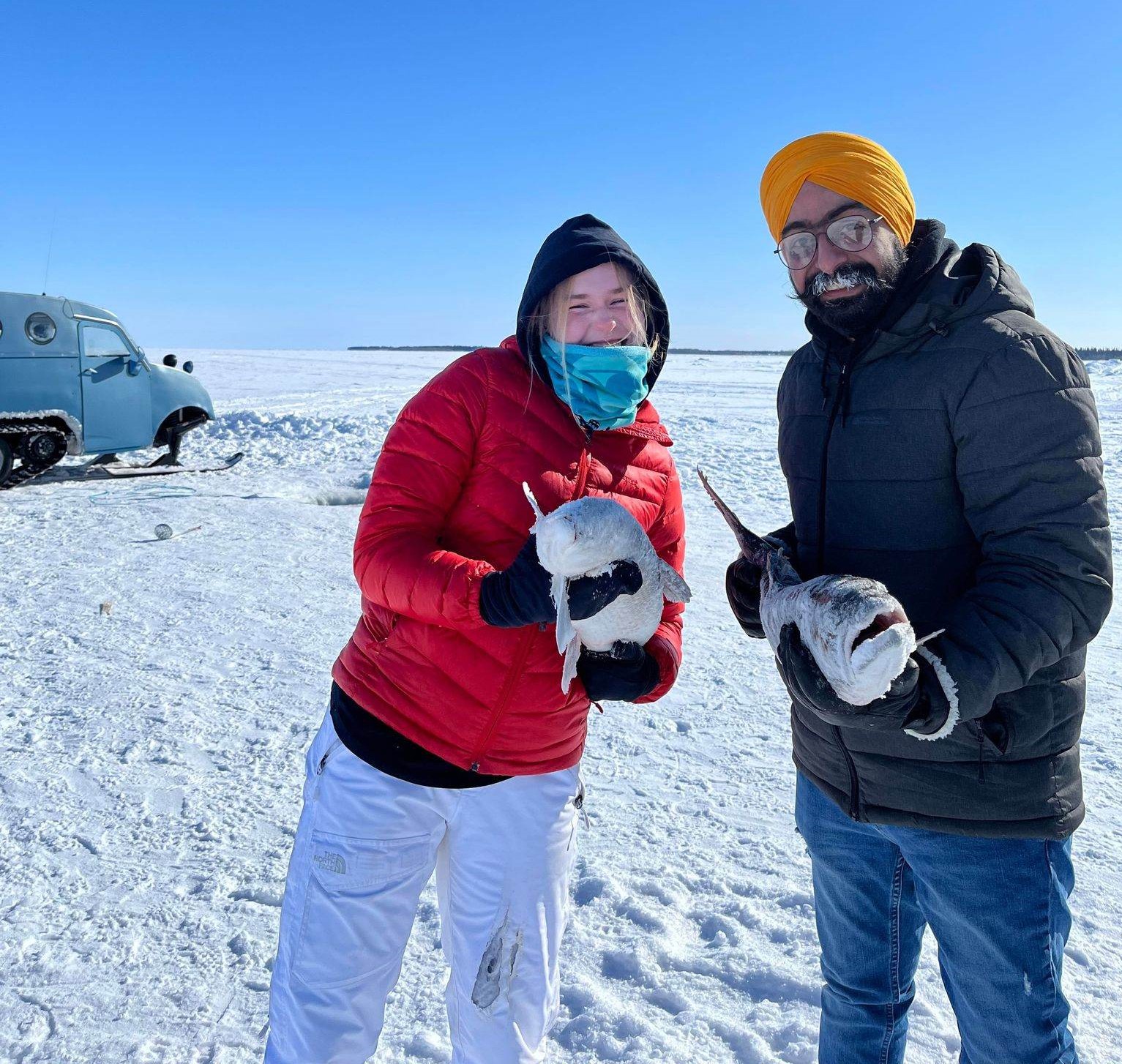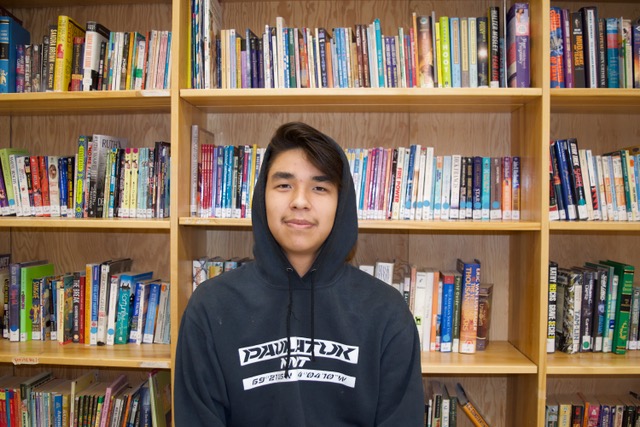Through community-driven initiatives, Cuso International is collaboratively fostering resilient, inclusive, and sustainable communities by centering Indigenous knowledge and self-determination. Programs focus on supporting Indigenous youth, reconciliation, gender equality and social inclusion, improving economic resilience through sustainable development, advancing climate change, and cultural preservation.
Impact and goals
Engage 11 Indigenous communities, with 72 volunteers placed in
Canada’s Northern Territories
- Support Indigenous Peoples: Provide resources and support for Indigenous-led initiatives focused on gender equality, economic resilience, climate action, and cultural preservation.
- Strengthen Community Connections: Foster meaningful relationships between Indigenous Nations, communities, and Cuso to support existing initiatives and priorities.
- Promote Cultural Sensitivity and Trauma-Informed Practice: Ensure all Cuso staff members, particularly those based in Canada, receive training on Indigenous cultural sensitivity and trauma-informed practices.
- Support Indigenous Engagement: Facilitate opportunities for Indigenous youth to engage in volunteerism, internship, employment and entrepreneurship within their communities and neighboring regions.
- Establish an Indigenous Advisory Circle: Create an Indigenous Advisory Circle to provide guidance and recommendations for the Canadian Program, as well as advise Cuso’s Board and staff on organizational changes to better align with Indigenous values and priorities
Key Activities
Working with Friendship Centers, Indigenous-led organization, youth groups, and collectives, Cuso International will implement three key projects:
- Northern Indigenous Program: Supports youth-led initiatives addressing local needs. This includes community dialogues with Indigenous youth and community leaders; providing micro-grants of $5,000 to Indigenous organizations and youth groups, as well as recruiting Indigenous youth to support them; and cultural and land-based activities to promote knowledge sharing, such as cultural exchanges, storytelling, hunting.
- FLINT Project: Fostering and Integrating Local Indigenous Knowledge from Northern Territories. This project engages Indigenous youth in sustainable development through community dialogues and youth-led projects. This will include exchange visits and Virtual Storytelling Nights, intergenerational activities for Elders to share Indigenous knowledge, educational resources, public awareness-raising activities, and support for Indigenous-led organizations
- Northern Distance Learning: Since 2016, volunteers have been working with Beaufort Delta Council and South Slave Divisional Education Council to provide cultural exchange opportunities and work in partnership with communities and volunteers to improve educational supports in the Northwest Territories.
- GLINT Project: Growing Youth Leadership in Indigenous Northern Territories (GLINT) is funded in part by Canada Service Corps, a national movement that empowers youth aged 12–30 to gain experience and build important skills while giving back to their community. Learn more at Canada.ca/CanadaServiceCorps.

Reconciliation: We aim to be a supportive ally to Indigenous-led organizations and a facilitator for non-Indigenous organizations seeking to engage in the Reconciliation process in Canada. By working collaboratively, we foster meaningful dialogue and actions that contribute to healing, understanding, and justice.
Building Positive Partnerships: Through a robust engagement strategy, we actively seek partnerships with First Nations, Inuit, and Métis organizations and communities. By cultivating strong relationships, Cuso International ensures that we are in the best position to build mutually beneficial and impactful partnerships that advance the well-being and aspirations of Indigenous communities.
Empower Your Community with Cuso Micro-Grants
About Cuso Micro-Grants
Cuso will provide small grants of up to $5,000 to Indigenous Youth Leaders to support projects taking place in Northern Canada. Youth Leaders (Grantees) will receive mentorship, training, and capacity-building to support the implementation of the project.
Guidelines for Micro-Granting
Grantees will be:
- Indigenous Youth (ages 15-30)
- Currently living in Nunavut, Northwest Territories or The Yukon.
For the purpose of this program, Cuso defines Indigenous as status and non-status First Nations, Inuit, and Metis peoples in Canada, living both on and off reserve.
Projects will:
1. Be designed and implemented by Indigenous Youth: Focus on programming, training, or capacity building opportunities for Indigenous youth (ages 15-30), based on specific needs in communities. The micro-grant can be used as a steppingstone to start a larger project or implement a new idea.
2. Contribute to one or more of:
- Reconciliation
- Building an Inclusive Canada
- Preserving the environment
- Strengthening youth resilience
3. Benefit at least 10 youth (including the Youth leader). Projects can involve and benefit other actors in addition to the Indigenous Youth, ex. parents, teachers, adults, Elders, etc.
Cuso will NOT fund projects that are:
- Political in nature
- Not youth-led
- Do not benefit Indigenous youth
- Projects or activities taking place outside of Nunavut, Northwest Territories or The Yukon in Canada.
- Part of for-profit businesses or corporations, or
- Involve distributing substances (i.e. alcohol, non-traditional tobacco, marijuana, illicit substances, etc).
Review Process
Applications will be reviewed by Cuso and its Advisory Group. In addition to the eligibility requirements above, consideration will be given to:
- New and emerging Indigenous youth-led grassroots groups and collectives
- Projects that are testing and/or trying a new idea
- New groups who have never run a project before
- Youth leaders/groups who have never received funding from Cuso
Reporting and Evaluation
Surveys - Cuso may, from time to time, circulate surveys to Youth Leaders and/or to Group Members to assess how things are going in the projects. If there are technical difficulties, then surveys can be conducted in an alternative way (ex. on a phone call).
Final Report – Within 2 months of project completion, Grantees will submit a project report that will include the financial report (how much money you spent). You can report in whatever format you like. Grantees will receive a sample reporting template as part of the funding agreement.
Release of Funds
Cuso does not issue cheques. Funding will be sent to Grantees via a bank transfer/direct deposit. Banking details for the Youth Leader will be required. If banking is an obstacle, let’s discuss other ways!
NOTE: If a group is applying, it is the designated Youth Leader who submitted the application that will sign the funding agreement and receive the funding. The Youth Leader will also be the main contact with Cuso.
Co-Applicants
If an individual is applying for a grant on behalf of a Youth leader/Youth group due to certain challenges or barriers, an Indigenous Youth from the group should still be listed as a Co-Applicant and be contactable to discuss the proposed project.
Cuso is committed to reducing barriers for youth applicants and to work on a case-by-case basis to identify alternative application means. Please contact us to discuss.
Trustees
If a Grantee is not of age to enter a legal agreement (under the age of 18), a Trustee will be required to co-sign the funding agreement.
Timelines
Grantees will receive funds within two weeks of submitting a signed funding agreement.
Application Form
Ensure you have reviewed and understand the Micro-Grant Funding Guidelines.
Complete, sign and submit the application form.
If you are having technical difficulties or cannot complete this form on a device or through the Cuso website form, please reach out to grants@cusointernational.org or via WhatsApp +(647) 478-4089 for an alternative submission method.
Financial Budget Templates
NORTHERN INDIGENOUS PROGRAM STORIES

Supporting education in Canada’s Northwest Territories
In Fort Resolution, Northwest Territories, educational challenges are nothing new. Schools in the community often see low attendance rates and a lack of motivation among students.
Supporting students’ education in the Northwest Territories
More familiar with the bustling city life of Toronto, Margot Ferguson is becoming accustomed to the quiet in Hay River, Northwest Territories. The Northern community offers a different landscape, different sociology, even a different winter.


Supporting students’ education and success
In the quiet hamlet of Paulatuk, N.W.T., Patrick Woodcock has become used to, and enjoys, the wind and cold, and the dark, long days of winter. Grizzly bears circle the small community in the summer, and wolves appear in the winter. Overlooking Darnley Bay in the Beaufort Sea, he can often see spotted seals on his walk to school.